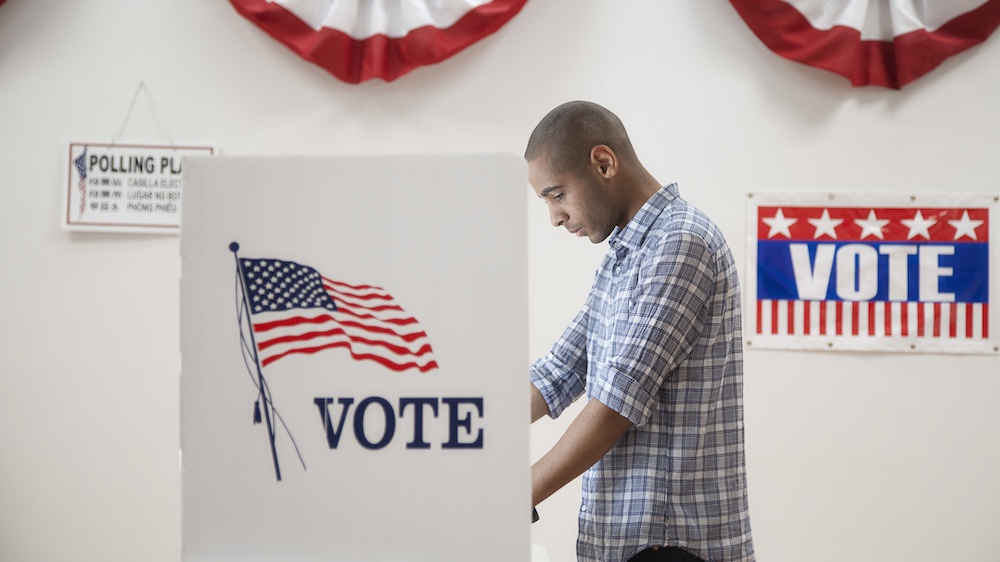If you’re interested in sharing your opinion on any cultural, political or personal topic, create an account here and check out our how-to post to learn more.
____
Ready to hear something you already know? COVID-19, as disastrous an effect as it’s had on the entire country, is hitting people of color — and the Black community in particular — hardest. As Charles Blow noted in the New York Times earlier this month, in “cities with a Black majority or plurality — New Orleans, Milwaukee, Chicago — … Black people represent 70 to 80% of the deaths, though their percentages of the population don’t come close to that.”
Indeed, we’re dying at higher rates than other races, risking our lives more than most (many Black Americans are deemed “essential” and “expendable” at once) and — unlike some of our privileged friends — sheltering at home or with family instead of on a remote beach house. As the old saying goes, when America gets a cold, Black folks get pneumonia.
To be sure, COVID has upended life in more ways than one and, with an election less than seven months away, Black voters are at risk of being disenfranchised more than our white counterparts. Just consider what happened in Wisconsin last week: state Republicans blocked the governor’s attempt to postpone the election to June (given COVID’s current intensity), the state supreme court struck down Evers’ emergency order, and the U.S. Supreme Court — by a 5-4 majority — refused to extend the deadline by which voters could submit absentee ballots that they hadn’t yet received. All voters in-state were hurt by these political plays; Black Wisconsinites, particularly those in Milwaukee, bore the brunt. As Sherrilyn Ifill, president of NAACP’s Legal Defense Fund, pointed out: “Today’s election is now legal, but it is democratically & morally illegitimate.”
These ploys, as frustrating as they are, don’t surprise many Black millennials. The sad fact is that the conservatives, from the 1960s to today, have pulled out all the stops to prevent voters and, in particular, the Black community — which frequently turns out on par with white voters, despite mass-scale suppressive tactics — from regularly casting ballots. Never mind Jim Crow tactics or poll taxes from the 1960s; in 2018 alone, we saw attempts to cancel voter registration applications (Georgia Secretary of State Kemp refused to process 53,000, 70% of which came from Black voters, until a court issued a preliminary injunction), imposition of photo ID laws known to keep 11% of the population (disproportionately affecting voters of color) from casting ballots and polling places in primarily Black and Latino neighborhoods shuttered.
These tactics are part of a longstanding strategy to keep Black voters, and other voters of color, home. Why? Because we vote. We vote in numbers that elect candidates that believe all people deserve human and civil rights.
Systemic racism produces the disparities we’ve seen in COVID-19 and makes the elections system that much harder to navigate. But there are solutions, and we’re collectively working — with Democrats and Republicans — to ensure that our votes, this November and beyond, get cast and counted.
To protect against disenfranchisement during this pandemic, my colleagues and I at the Leadership Conference for Civil and Human Rights, in addition to hundreds of other civil rights, voting rights and good-government groups, have come together to urge a comprehensive and uniformed elections package that all states must implement if we are to vote safely, fairly and freely in 2020. Yes, we must all be afforded the opportunity to vote by mail — this is especially true for citizens whose health is in the “at-risk” category — but in-person voting options, including during weeks-long early voting periods (with minimal crowds allowing for social-distancing) must also be offered. Significantly, proper balloting processes must be in place to ensure votes cast are fairly counted, not discriminatorily rejected.
Case in point: In Georgia during the 2018 midterm election, only 2.5% of white voters had their absentee ballots rejected, compared to 14.8% of Asian-American voters, 8% of Black voters and 4.3% of Latinx voters. In addition, a Florida ACLU study found that “younger voters, as well as voters from racial and ethnic minorities, are much more likely to cast VBM (vote-by- mail) ballots that are rejected, and are less likely to cure their VBM ballots if SOE (supervisors of elections) staff flag them for having signature problems.”
Since many will vote by mail this fall, elections officials — again, uniformly, throughout the country — must provide voters with an opportunity to cure any perceived defects in signature. Or even better, remove draconian match requirements that disenfranchise Black voters. And because Black voters frequently have less time than whites, it’s essential that eligible voters be afforded fair redress — say, 10 days to correct identified issues — by all means (in-person, mail and other remote means).
Yes, this is a challenging time. All Americans are feeling it, and people of color are likely feeling it harder. But there is hope. I’ll tell you something else you already know: the Black community has not shied from challenge. Our parents, our grandparents have regularly reminded us of what’s at stake and how to rise up to the challenge. This is one of those moments.
____
Ashley Allison is executive vice president of campaigns and programs at The Leadership Conference. Allison brings over a decade of outreach, community organizing, and campaign experience, along with expertise in crisis management, coalition building, and strategic planning.
